Jim Buckner
As I’ve noted elsewhere before, my father—Rev. James C. Buckner (1916-1996)—was an Episcopal clergyman in League City, Texas, in the 1960s. He was a gentle, kind, highly respected, beloved man. Buckner Hall at St. Christopher’s church in League City was named in his honor. Had he lived, he’d be 107 next month.
He was married for 52 years to Marie Celeste Sanford Buckner (1922-1998) and they had five children, beginning with me.
Dad in June 1944; followed by a photo of my parents and Dad’s mother, Clara Belle Buckner, sometime in the mid-1940s—
My parents and I had our differences, but I loved Dad dearly and counted him a hero, whether on 15 February 1945 he was even more of a hero than I knew or just lucky that others were heroic. I wish it were possible to know which, but I don’t really think it is.
On that day in 1945, he was a 2nd Lieutenant in the US Army Air Force and a navigator on a B-17 Flying Fortress departing from Molesworth, England (near Cambridge) to go on a bombing raid over Dresden, Germany. The flight would have been a part of the controversial three-day firebombing of that city, a city arguably of questionable military or industrial significance. Thousands of people burned to death as a result—but my father had no control over that, I know only superficial details about it, and I’m not trying to discuss the controversy here. (Read Slaughterhouse-Five, or The Children's Crusade: A Duty-Dance with Death [1969] by Kurt Vonnegut, Jr., for a satirical/science fiction novel on the subject.)
Michael Buckner at 303rd Bomb Group (H), 8th Air Force monument, near Molesworth, England—
Ed Buckner at 303rd Bomb Group (H), 8th Air Force monument, near Molesworth, England—
My father’s plane was piloted by American Werner Goering and, because Goering became famous (related partly to his alleged kinship with Hermann Göring, Nazi German leader), details of Dad’s fate are described briefly (pp. 204-206) in a 2013 book, Hell Above Earth, by Stephen Frater. (The book is available in many libraries.)
The big plane, fully loaded with bombs and fuel, took off in heavy fog, with strong crosswinds. It only made it a few hundred yards beyond the end of the runway before crashing and breaking into three large pieces. No one was killed, but several were hurt. My father was, moreover, trapped in one section, his knee crushed, and he was firmly stuck. Three men—Sgt. R. C. Eckert, Sgt. P. B. Johnson, Jr., and Sgt. Joseph Blinebury (their leader)—rushed back into the wreckage and managed to get Dad out, helping him away from the crash only brief moments before the plane burned and exploded. This blew a hole into the ground a three-story house would fit into.
(That’s Jim Buckner, third from left in back row, four months before the plane crash.)
Wounded, Dad was sent home and, a little over a year later, I discovered Earth. Dad had served our nation in a time of great peril but was off active duty.
For more on the plane crash, see http://www.303rdbg.com/missionreports/315.pdf .
There’s really no doubt that Dad—and therefore his family, eventually including me and my four siblings and our children, were incredibly fortunate to be on the right side of history that day.
But what about the “hero” possibility? SSG Joseph Blinebury of Philadelphia, Pennsylvania, one of the three unquestionable heroes in that moment, got a medal (the Soldier’s Medal) for saving Dad. When I decided to try to look him up, Blinebury was in his nineties but still alive (he died at 96 in 2015; Dad died in 1996). His son told me his father was too deaf to talk on the phone, but that he would tell him I called and pass on to him how grateful we are. The son called me back later to report that his father was pleased I’d reached out. And, though my father never told me this (and it’s possible Blinebury said it just for my benefit), Blinebury told his son that Dad had firmly and directly ordered the three men to get out of there and leave him, because the plane was going to explode any second.
I’m sure glad Americans don’t always follow orders.
Note: Anyone may copy and publish what I or my guests write, provided proper credit is given, that it’s not done for commercial purposes, that I am notified of the copying (you can just leave a comment saying where the copy is being published), and provided that what any of us write is not quoted out of context or distorted.
Thanks for reading Letters to a Free Country! Subscribe for free (always) to receive new posts and support my work.

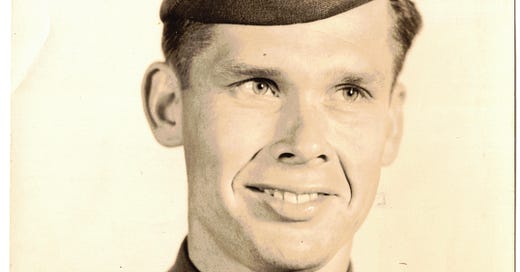



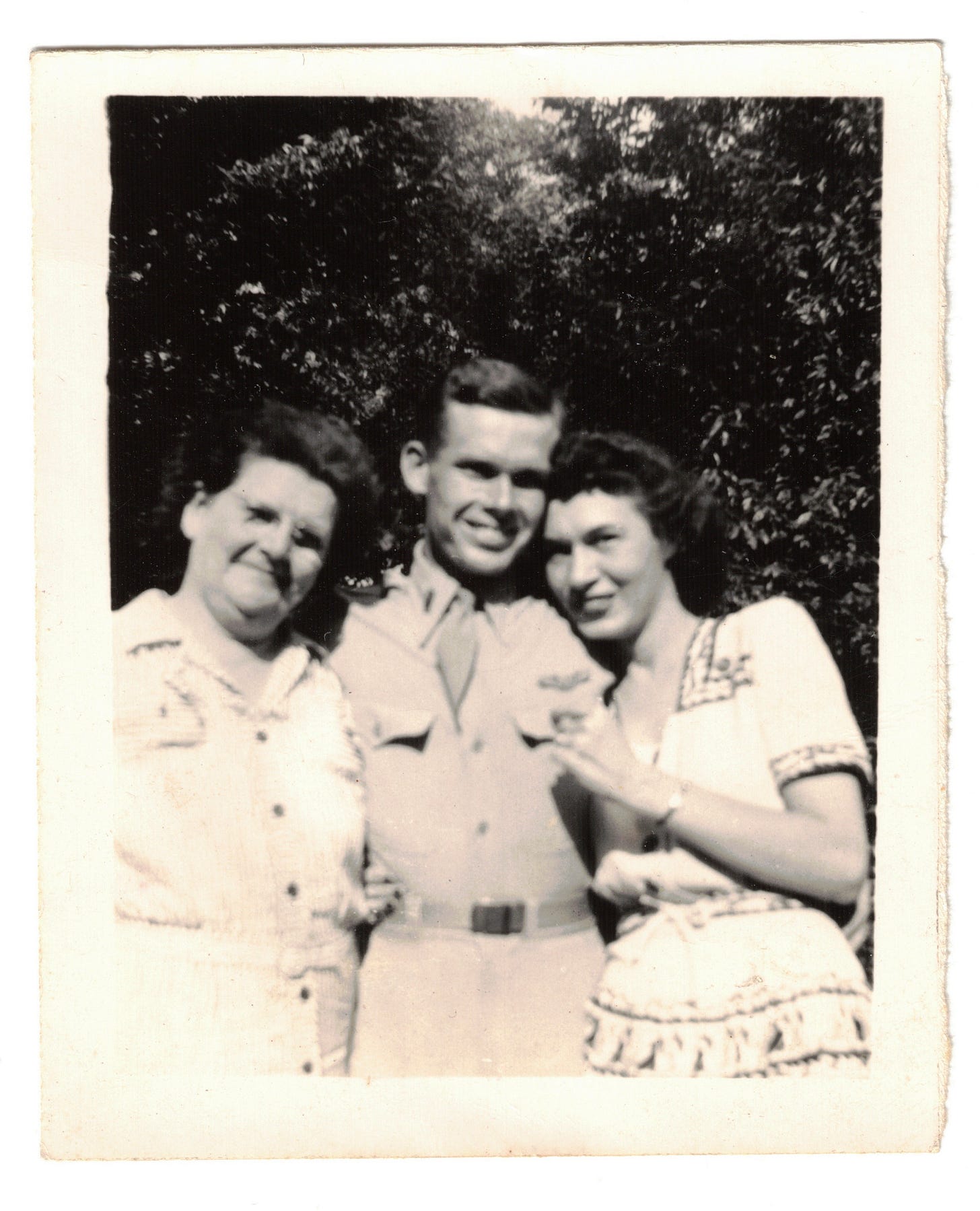
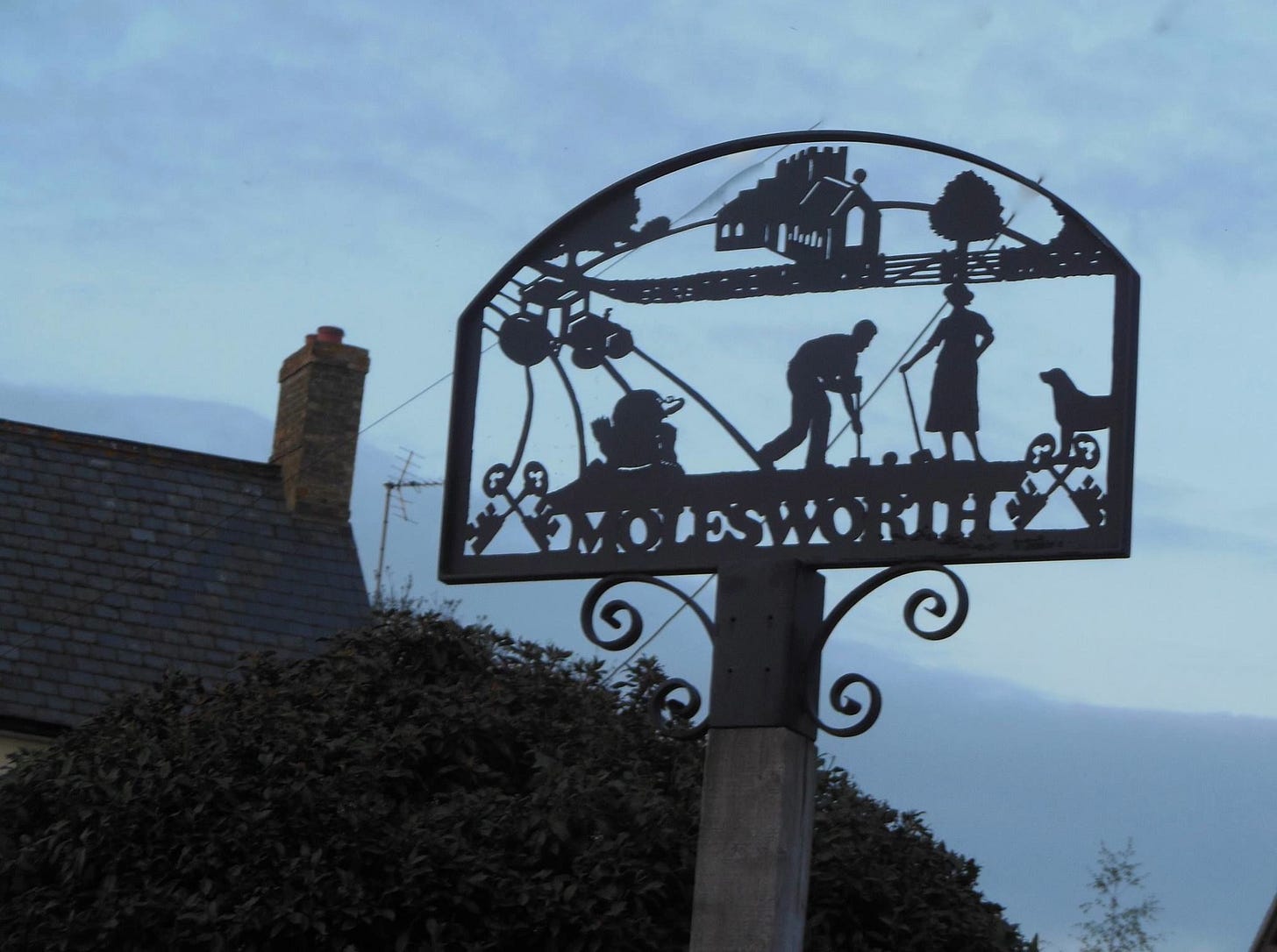
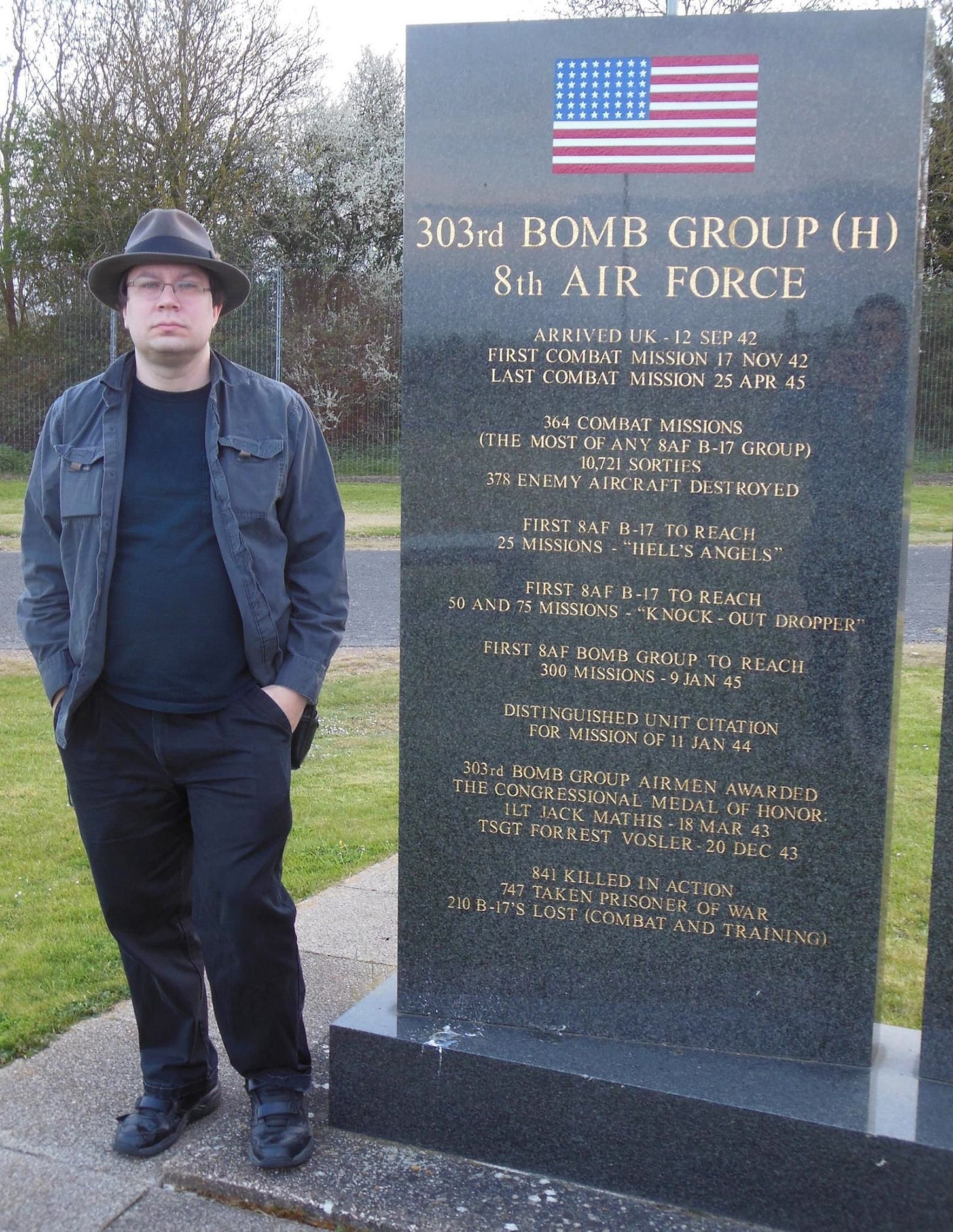
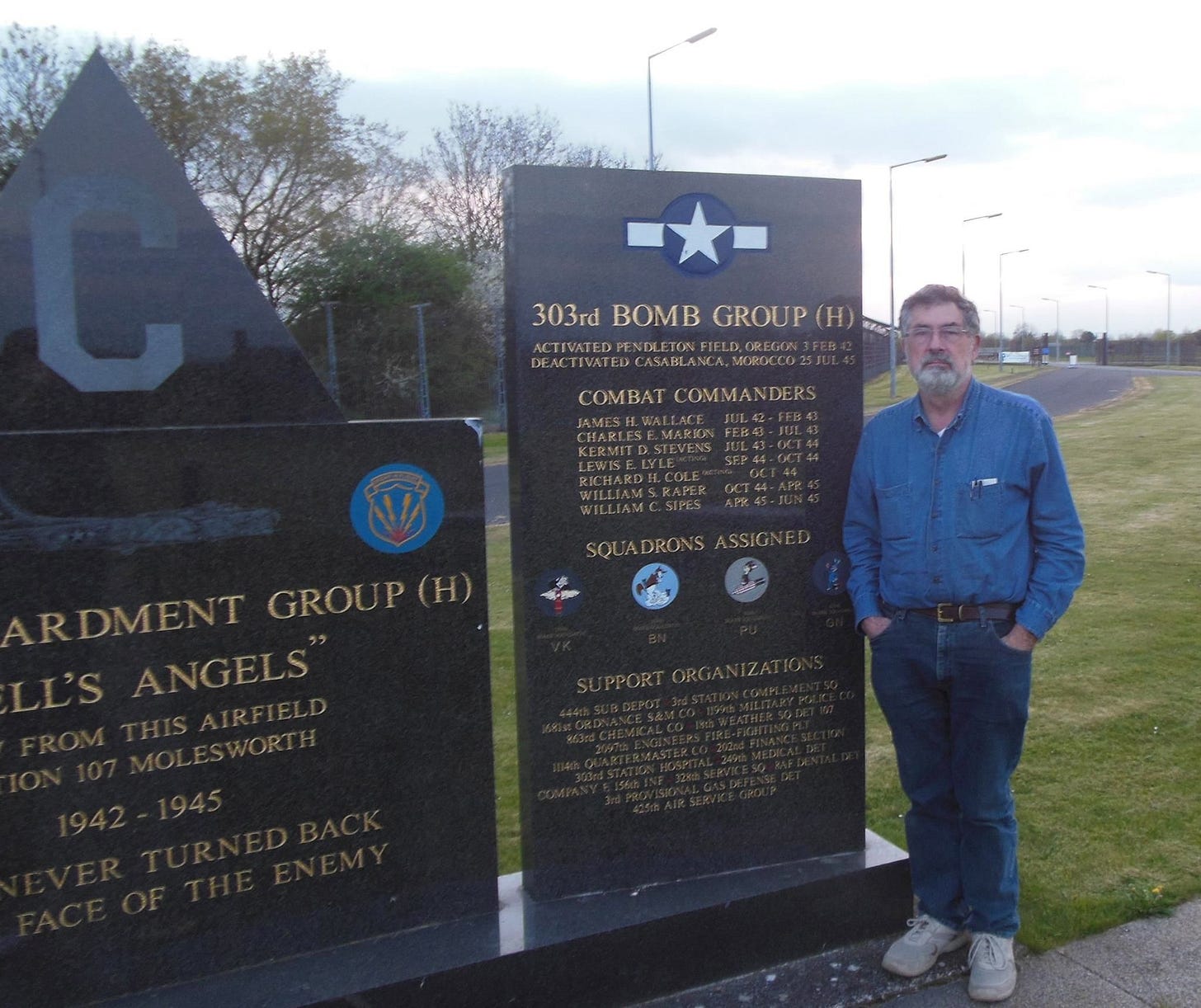

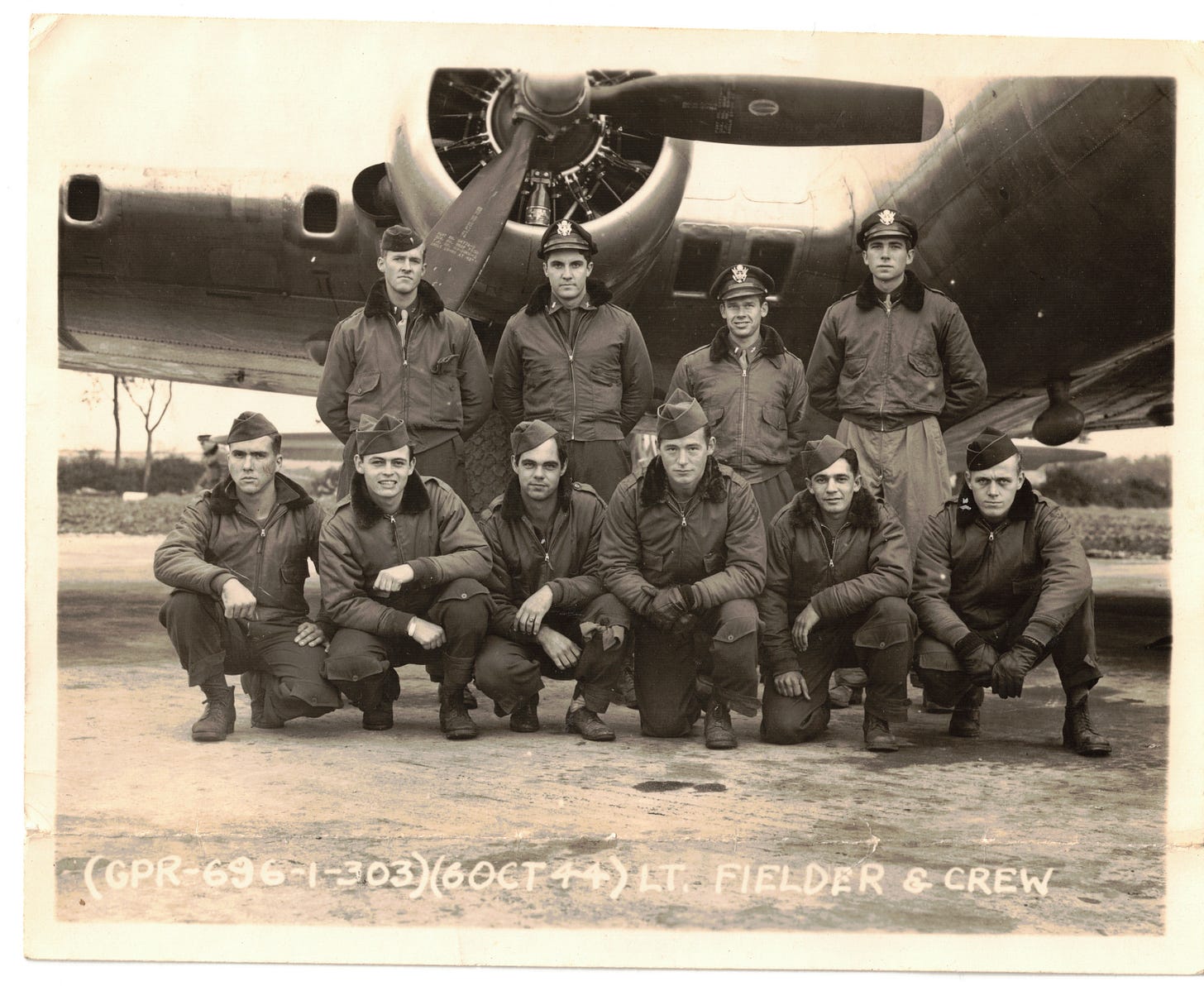
Aircrews over the Reich suffered terrible casualties, and their deaths were gruesome. The most famous poem in English from WW II is Randall Jarrell's "The Death of the Ball Turret Gunner":
From my mother's sleep I fell into the State
And I hunched in its belly till my wet fur froze.
Six miles from earth, loosed from its dream of life,
I woke to black flak and the nightmare fighters.
When I died they washed me out of the turret with a hose.
We cannot forget the price they paid to destroy a monstrous evil.
I love knowing more about your father. It explains why you're such an incredible human being. And I'm not sure folks know what a real hero looks like anymore, but he certainly was a man of great valour.